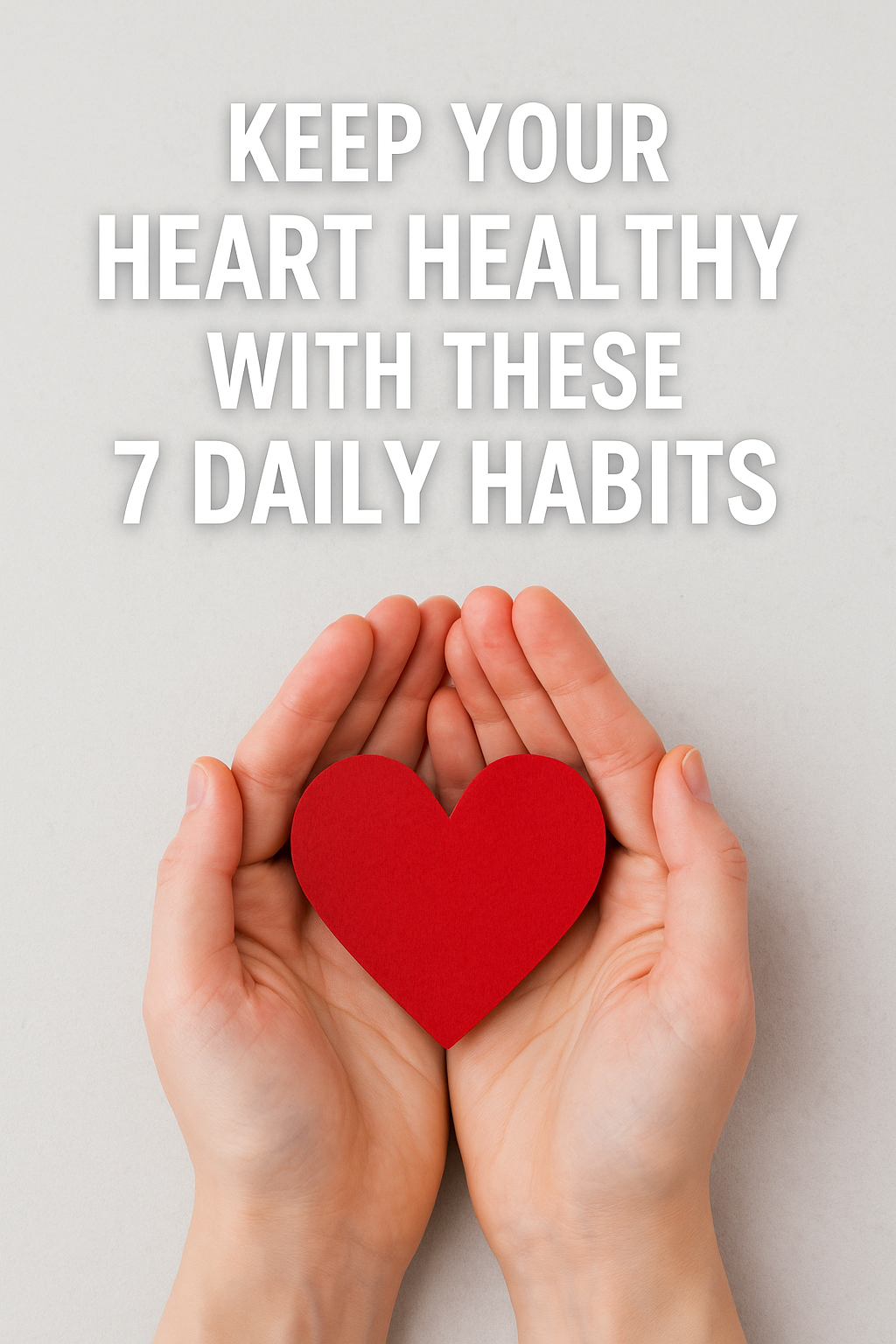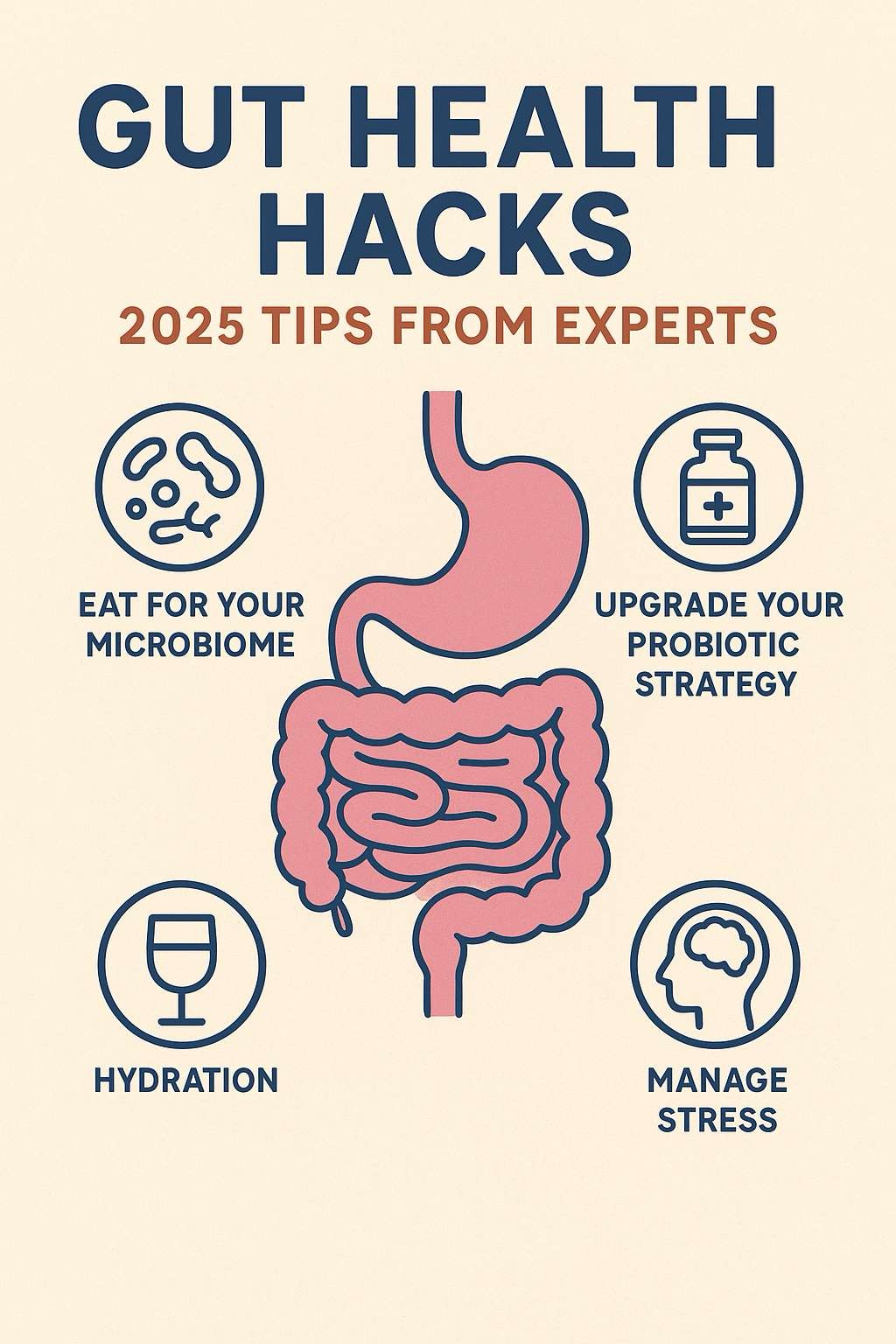
Your heart is one of the most important organs in your body — and keeping it healthy is vital to a long and active life. Heart disease is one of the leading causes of death globally, but the good news is that most heart-related issues are preventable. By adopting a few simple lifestyle changes, you can strengthen your heart naturally and reduce the risk of cardiovascular problems.
Here are 7 effective, science-backed habits you can start today:
1. Eat More Heart-Healthy Foods
A diet rich in fruits, vegetables, whole grains, and lean proteins can significantly improve your heart health. Focus on:
Leafy greens like spinach and kale Berries (blueberries, strawberries) Nuts and seeds (almonds, flaxseeds) Oats and barley Fatty fish like salmon or mackerel
Avoid processed foods, excess salt, and trans fats. Replace fried snacks with baked or grilled options. Even small dietary changes can have a big impact over time.
2. Stay Physically Active
Regular physical activity strengthens your heart muscle, improves circulation, and helps maintain healthy blood pressure.
Aim for at least 30 minutes of moderate exercise 5 days a week. Walking, cycling, swimming, and yoga are excellent choices. Even climbing stairs instead of taking the elevator helps!
If you’re just starting, begin with short walks and gradually increase your duration.
3. Maintain a Healthy Weight
Being overweight increases your risk for heart disease, especially when fat accumulates around your midsection. Reducing even 5-10% of your body weight can:
Lower cholesterol Reduce blood pressure Improve blood sugar levels
Focus on portion control, eat slowly, and choose nutrient-dense foods over high-calorie junk.
4. Quit Smoking and Limit Alcohol
Smoking is one of the top risk factors for heart disease. It narrows the arteries, reduces oxygen in your blood, and raises your blood pressure. Quitting smoking immediately improves heart health.
Similarly, alcohol should be consumed in moderation. Excessive drinking raises blood pressure and contributes to irregular heart rhythms.
5. Get Quality Sleep
Poor sleep has been linked to high blood pressure, obesity, and increased heart disease risk.
Adults should aim for 7–9 hours of sleep per night. Establish a regular bedtime routine Avoid screens 1 hour before sleep Keep your room cool and dark
6. Manage Stress Effectively
Chronic stress leads to inflammation, high blood pressure, and unhealthy coping mechanisms like binge eating or smoking.
Try these methods to lower stress:
Deep breathing exercises Meditation or mindfulness Journaling your thoughts Spending time in nature
Even a few minutes of quiet time can have a calming effect on your heart.
7. Get Regular Health Screenings
Preventive health check-ups can detect risk factors early:
Blood pressure Cholesterol levels Blood sugar levels
If you have a family history of heart disease, talk to your doctor about a personalized heart-health plan.
✅ Final Thoughts
Your heart works 24/7 — so give it the care it deserves. You don’t need fancy gym memberships or expensive diets. Just focus on consistency and make these small but powerful changes part of your daily life.
Remember: A healthy heart leads to a happy, energetic life.


